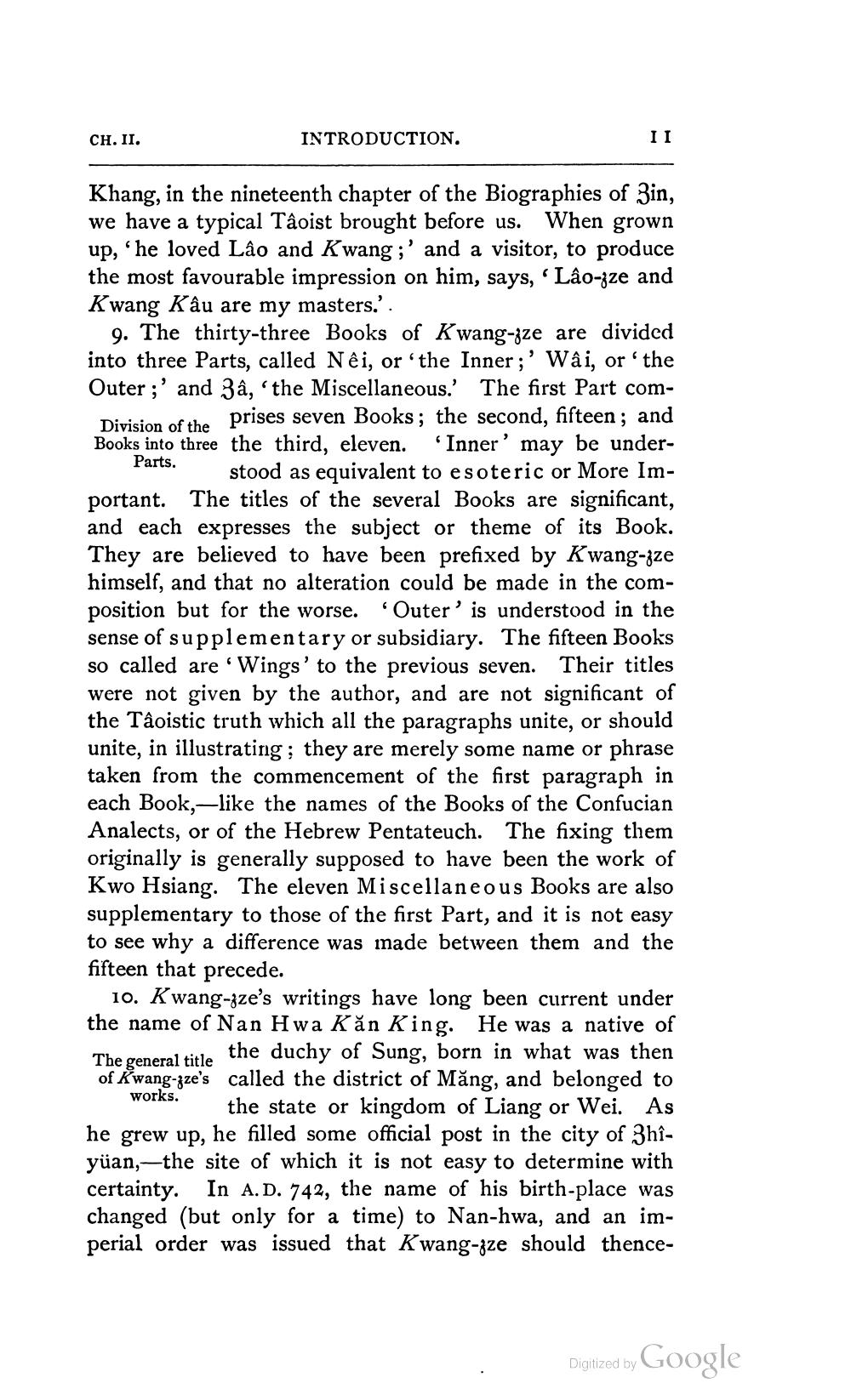________________
CH.II.
INTRODUCTION.
II
Khang, in the nineteenth chapter of the Biographies of Zin, we have a typical Tâoist brought before us. When grown up, 'he loved Lâo and Kwang;' and a visitor, to produce the most favourable impression on him, says, 'Lâo-zze and Kwang Kâu are my masters.
9. The thirty-three Books of Kwang-sze are divided into three Parts, called Nêi, or the Inner;' Wâi, or the Outer;' and Zâ, 'the Miscellaneous. The first Part com
Division of the prises seven Books; the second, fifteen; and Books into three the third, eleven. “Inner' may be underParts.
S. stood as equivalent to esoteric or More Important. The titles of the several Books are significant, and each expresses the subject or theme of its Book. They are believed to have been prefixed by Kwang-zze himself, and that no alteration could be made in the composition but for the worse. Outer' is understood in the sense of supplementary or subsidiary. The fifteen Books so called are 'Wings' to the previous seven. Their titles were not given by the author, and are not significant of the Taoistic truth which all the paragraphs unite, or should unite, in illustrating; they are merely some name or phrase taken from the commencement of the first paragraph in each Book,-like the names of the Books of the Confucian Analects, or of the Hebrew Pentateuch. The fixing them originally is generally supposed to have been the work of Kwo Hsiang. The eleven Miscellaneous Books are also supplementary to those of the first Part, and it is not easy to see why a difference was made between them and the fifteen that precede.
10. Kwang-zze's writings have long been current under the name of Nan Hwa Kăn King. He was a native of The general title the duchy of Sung, born in what was then of Kwang-zze's called the district of Măng, and belonged to works.
the state or kingdom of Liang or Wei. As he grew up, he filled some official post in the city of Zhîyüan,—the site of which it is not easy to determine with certainty. In A.D. 742, the name of his birth-place was changed (but only for a time) to Nan-hwa, and an imperial order was issued that Kwang-zze should thence
Digitized by Google




